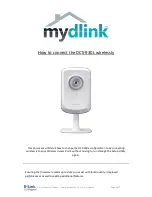
Manual exposures
For special effects or other situations where you wish to set the lens manually, merely turn Auto/Manual Ring (B)
until the f stop you desire is aligned with the black indicator marker (Fig. 6).
Holding the camera
When you are ready to take the picture, hold the camera steady, and gently press Shutter Release Button (A) all the
way down.
Viewing and focusing
Look into Viewfinder Eyepiece (K) to compose
your picture and focus the lens. Rotate Focusing
Ring (E) until your subject becomes clear in the
micro-prism focusing screen (Fig. 7).
Since you are viewing through the taking lens
there is no parallax problem what you see in the
viewfinder will
appear in your picture. Even when you shoot close
ups there is no longer danger of accidental
cropping.
Changing the lens
Your camera is equipped with a 55 mm lens which is
the proper focal length for general-purpose picture
taking. You may also use Rikenon 100mm telephoto
or 35mm wide-angle lens.
To remove the lens for exchanging the lenses, continuously turn the lens counterclockwise until it comes off
(Fig. 8).
To insert the standard lens or telephoto or wide-angle lens, turn lens clockwise until the lens stops.
























